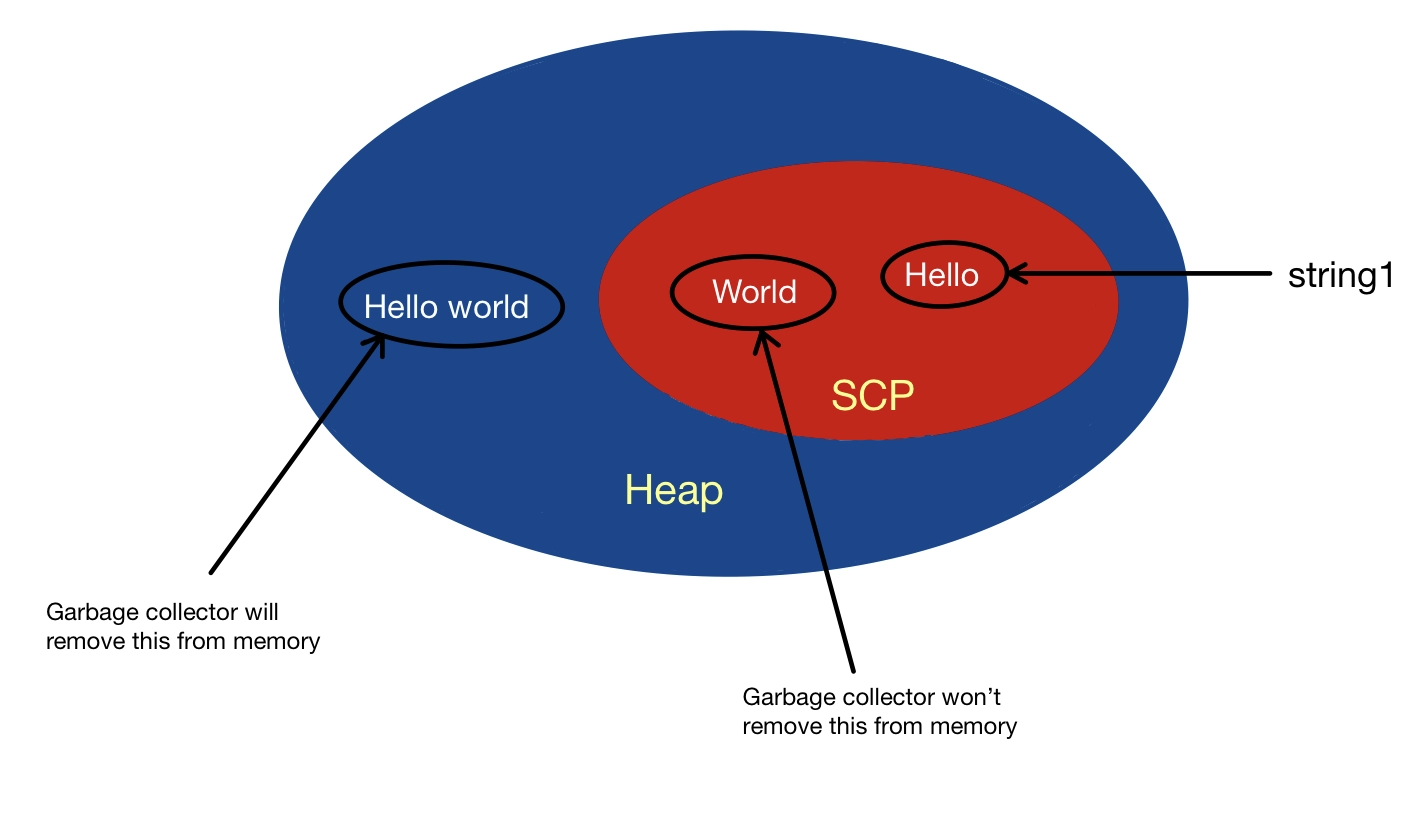Why Are Strings Immutable in Java? Safety and Performance Conveniences
Why Are Strings Immutable in Java? Safety and Performance Conveniences
Blog Article
What Is Immutable Strings and Just How It Works
In the realm of programming, recognizing the idea of immutable strings is critical for creating protected and durable applications. Immutable strings refer to strings that can not be altered after they are created, ensuring information honesty and predictability within the code. This essential principle plays an important function in various shows languages and uses an unique strategy to managing data. By exploring the intricacies of how unalterable strings work, one can uncover a world of benefits and possibilities that can boost the high quality and performance of software program development.
The Essentials of Unalterable Strings
Immutable strings, as a basic principle in programs, are personality series that can not be changed once they are produced. This means that as soon as a string is appointed a worth, that value can not be altered. In languages like Python and Java, strings are unalterable items, resulting in different implications in terms of memory monitoring and data honesty.
Among the essential advantages of immutable strings is that they provide a feeling of safety in information adjustment. Given that the web content of an immutable string can not be changed, it makes sure that the original data stays undamaged, lowering the risk of unexpected modifications throughout program implementation (Why are strings immutable in Java?). This building likewise streamlines debugging processes, as programmers can trust that once a string is specified, its value will not be unintentionally altered
When a new string is created based on an existing one, rather than modifying the original string, the new worth is saved individually. Overall, comprehending the basics of unalterable strings is crucial for mastering shows principles and maximizing code efficiency.
Benefits of Immutable Strings
Building upon the security and performance advantages of immutable strings, their advantages prolong to improving code dependability and simplifying concurrent shows jobs. By being unalterable, strings can not be customized after production, which removes the threat of unintended modifications in the information they save. This integral immutability makes sure that as soon as a string is created, its worth remains consistent throughout the program's execution, minimizing the chances of insects triggered by unanticipated changes.
Furthermore, unalterable strings add to code reliability by making it less complicated to reason about the state of a program. Since strings can not be transformed, developers can rely on that a string will certainly always hold the exact same worth, streamlining debugging and maintenance efforts. This predictability brings about more reliable and steady codebases.

Application in Programming Languages
Within numerous programs languages, the consolidation of unalterable strings is a basic element that influences just how information is dealt with and manipulated within code frameworks. The execution of unalterable strings differs across different programming languages, with each language supplying its own systems to sustain this idea.

In contrast, languages like C and C++ do not have built-in support for immutable strings. Programmers in these languages should by hand apply immutability by enforcing regulations within their code to stop straight modifications to string objects.
Finest Practices for Collaborating With Unalterable Strings
When handling unalterable strings in programs languages like Java and Python, sticking to best practices guarantees effective and secure data control. Among the crucial finest techniques is to utilize StringBuilder or StringBuffer as opposed to straight controling strings, especially when dealing with substantial concatenation procedures. These courses give mutable alternatives for string manipulation, aiding to avoid unneeded memory allocations and boosting performance.
Another ideal practice is to use string interpolation or format functions supplied by the language rather than manual concatenation. This not just improves readability but also help in protecting against typical challenges such as unintentional string adjustments. Additionally, when functioning with sensitive information such as passwords or API tricks, it is critical to prevent keeping them as plain message in unalterable strings. Using safe and secure storage space devices like char selections or specialized collections for managing delicate info aids alleviate safety dangers connected with immutable strings.
Real-world Applications and Instances
Discovering practical implementations of immutable strings in different sectors reveals their significant effect on information honesty and system integrity. In the healthcare industry, unalterable strings play a vital role in guaranteeing the safety and confidentiality of patient information. By protecting against unapproved adjustments to delicate information such as clinical records and prescriptions, unalterable strings assist keep compliance with rigorous privacy guidelines like HIPAA.
Financial navigate to these guys organizations likewise gain from the unalterable nature of strings to improve the safety of customer data and transaction documents. Unalterable strings help stop fraudulence and unapproved alterations to monetary details, supplying a robust protection against cyber hazards and guaranteeing the trust fund and confidence of customers.

Conclusion
In final thought, unalterable strings are fixed and unchangeable series of personalities that offer benefits such as thread safety and security and boosted efficiency in shows. They are executed in different shows languages to make certain information honesty and safety and security. Best practices for dealing with immutable strings include avoiding direct alterations and making use of methods that return brand-new string things. Real-world applications of unalterable strings consist of data file encryption, caching, and string control jobs.
Immutable strings refer to strings that can not be altered after they are produced, guaranteeing information stability and predictability within the code. When a brand-new string is developed based on an existing one, instead than customizing the original string, the new worth is saved separately.In languages like Java and Python, strings are immutable by default, implying that when a string object is developed, its worth can not be changed - Why are strings immutable in Java?. Finest methods for working with unalterable strings consist of staying clear of straight alterations and making use of techniques that return brand-new string items. Real-world applications of immutable strings consist of information file encryption, caching, and string manipulation tasks
Report this page